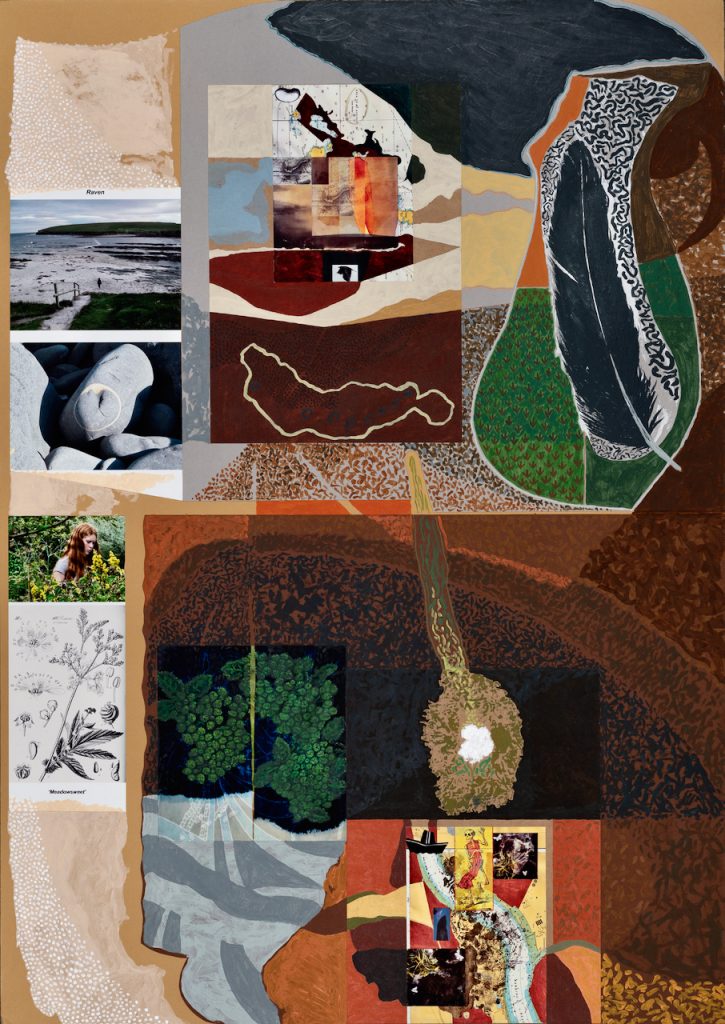
Kathleen Jamie. Scots poet and essayist who in 2021 became Scotland’s forth Makar. The key reference here is to her poem Meadowsweet, which appears in Waterlight: Selected Poems (Saint Paul, Minnesota, Graywolf Press, 2007).
Erin Kavanagh. Irish by birth, long resident in Wales and Welsh-speaking, is a polymath, a poet, musician, artist and mythogeographer. We have collaborated on 2017 she and I collaborated on two performances lectures: The Crow Road (2017) https://www.geomythkavanagh.com/geomythkavanaghthe-crow-road, a version of which is published as The Crow Road: performing bridge-making (Green Letters 23:3 2019) and The Selkie (2019) https://www.geomythkavanagh.com/the-selkie. These two works draw on our shared interest in exploring processes grounded in the inclusive, polyvocal mentalité often referred to as ‘deep mapping’.
Note:
Jamie’s poem is prefaced by a reminder that tradition in Scotland suggests that certain Gaelic women poets were buried face down. (One such who is said to have requested such a burial is Màiri nighean Alasdair Ruaidh, also known as Mary Macleod). Such burials were reserved for individuals that the community, or those who claimed the authority to act on its behalf, saw as deviant or undesirable, for example those deemed to be “witches”. The idea appears to have been that, when the Last Judgement was announced, such individuals would dig down into the earth rather than rise into the light. In Meadowsweet, however, the dead poet returns to the living world, young again and full of ‘dirt and spit and poetry’. Why meadowsweet? Traces of meadowsweet have been found in Bronze Age burials in Wales, Scotland and on Dartmoor. It has a long tradition of use in treating illness, contains salicylic acid, a compound of which was synthesised to develop aspirin. In Welsh mythology Gwydion and Math fab Mathonwy made Blodeuwedd (“flower face”) out of oak blossom, broom, and meadowsweet. Yet in parts of Wales and elsewhere it was believed that if a person fell asleep in a room where Meadowsweet flowers were placed, death was inevitable. My wife vividly remembers how upset her grandmother was when, in 1972, she and her sister had brought meadowsweet into the cottage in County Durham where her grandfather was seriously ill.